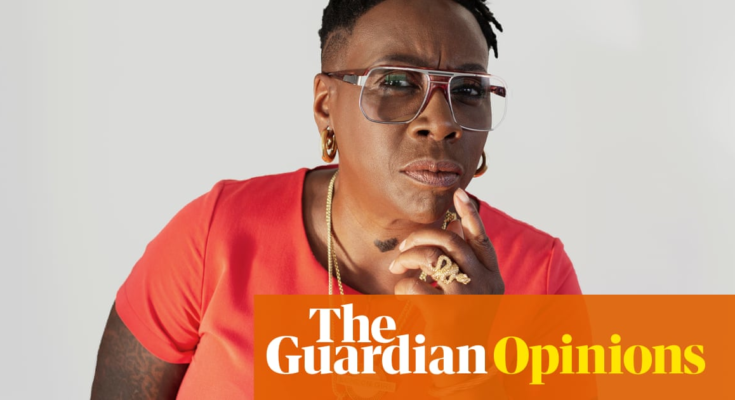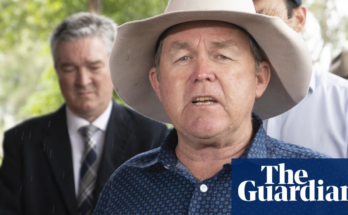Female creatives in Britain are less likely to be allowed to create original dramas and comedies than men. So they are heading off across the Atlantic
Wed 14 Jul 2021 13.05 EDT
I have been working on a television script set in the OG, glamorous roaring 20s. All the futurists tell us that the end of lockdown is the beginning of the raunch relaunch, and we don’t need experts to tell us we wouldn’t say no to a masked ball as long as the mask wasn’t surgical.
I’ve been writing about all the American women who came to Britain to make their fortune and be taken seriously. Actor and wit Tallulah Bankhead – who famously said “My father warned me about men and booze but never said a word about women and cocaine” – couldn’t catch a break on Broadway but became the most famous woman in the UK. Virginian Nancy Astor was an elected MP a year before she even got the vote in the US. Singer and dancer Josephine Baker, who refused to perform for segregated audiences in the US and made Paris her home, was also a West End star.
Now, however, women in show business are leaving for America in droves – draining Britain of exceptional talent because we are gaslit by the UK industry. It’s an ancient tactic. The suffragettes were kept in red tape for decades: just fill out one more form, hold one more coffee morning. If they had been told the truth – “We are never planning to give you the vote and we’ve designed the system so you’ll never beat it” – they would have got much more radical much earlier.
Television development is the same. Women are given diversity schemes, special lunches and constantly told their next pilot will hit a television screen. I was recently kept rewriting the same script for 18 months. The commissioner texted me: “Get your Bafta dress ready!” and described the project as “compelling and comprehensive”, saying excitedly: “You’ve done it!” Did she greenlight it? Nope. She couldn’t explain why. When I pointed out that she rarely commissioned women, she said: “I know I’ve got a problem and that’s why I have so many women in development.”
It takes a toll on women’s mental health and wastes years of our lives. We’d rather be told: “You’re free to go. We don’t want you in this country.”
It is possible for a woman to create a television show in this country – if she already has a significant profile and it is an autobiographical half hour. (This isn’t sour grapes – I’ve built a huge, engaged audience in The Guilty Feminist podcast, so I am hypothetically in this lottery-winning category and being courted by Hollywood.) Otherwise, all she can do is adapt a novel – ideally one about a woman being killed and mutilated. Please find exceptions to this rule and enjoy counting them on one hand. In Britain, women are not trusted to write from our imaginations or tell stories of historical women.
Scarily talented, relentlessly hardworking friends, including the actor and writer Sarah Solemani, standup and writer Bisha K Ali and comedian and writer London Hughes, have already gone to the US after being endlessly frustrated here. All of them became showrunners inside a few months or years. Sarah is shooting back in the UK now because she has covered herself in Stateside-glory, but a prophet is never accepted in her home town if that town is London.
Hughes and the comedian Gina Yashere just had a brilliantly frank conversation about their experiences as Black British women in the US, in which Yashere says: “Yes, the country is super-racist, but that glass ceiling is a lot higher than in England. So you’re a multi-millionaire when you hit it!”
Across the BBC, ITV, Channel 4, Netflix and Sky it is a matter of public record that only 23% of dramas were written by women in the past five years. Of these, 42% were adaptations, which means only 13% were original stories written by women. Men wrote 77% of dramas over the same period – and 55% of these were original stories. Only 26% of scripted comedy shows on TV in the same period were written by women.
This is meaningful because a society is a reflection of the stories it tells. Either men are significantly better at writing or something is deeply sexist in the commissioning departments of British broadcasters. Those are the only options I can see.
Sadly, it seems, I must cross the Atlantic in the opposite direction from my muse, Tallulah Bankhead, to get her glorious story on to our screens. Either that or, like the suffragettes, women will have to get radical. It’s the 20s … hear us roar.
{{topLeft}}
{{bottomLeft}}
{{topRight}}
{{bottomRight}}
{{/ticker}}
{{heading}}
{{#paragraphs}}
{{.}}
{{/paragraphs}}{{highlightedText}}



